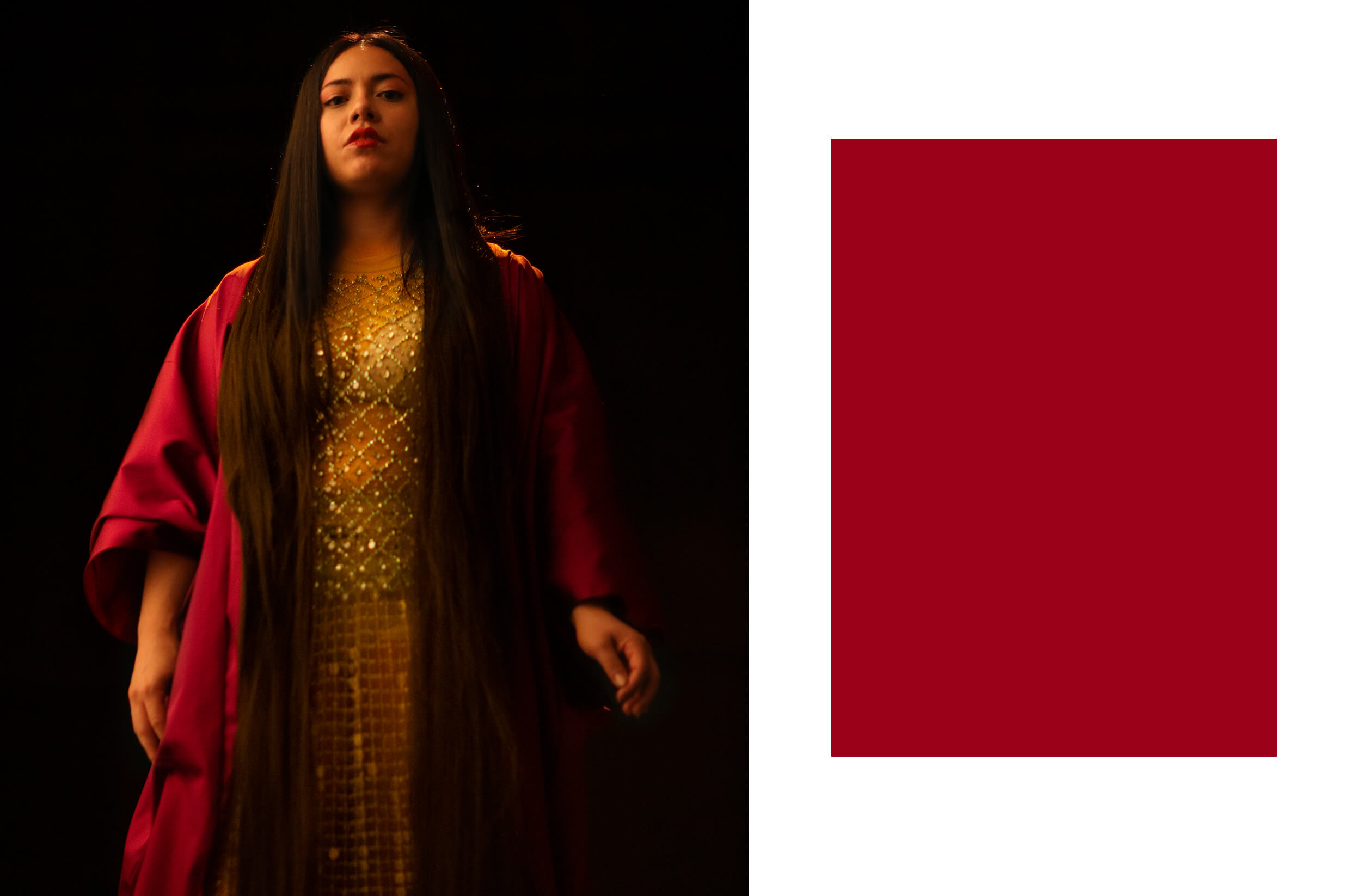Geometry and symmetry, in nature as in the human body, manifest themselves to balance and fine-tune everything that otherwise would be chaos. For this reason, nothing happens randomly, or rather everything is connected: even a blink of butterfly wings can impact the other side of the world.
This is the story of “Eyes Two Time Mouth”, the closing short film of the 25th Miu Miu Women’s Tales: you can reinvent yourself if you want it, and there’s always time to blossom if you keep dreaming big. Here’s the beauty of art, where “when you want to say something so badly, no matter what, you’re going to do it. That’s something super brave to do.” Lila Avilés has plenty of courage, initiative, experience, and above all versatility: in the cinema industry, she’s done it all, from makeup to costumes, from castings to production, and now she’s behind the camera telling the world of theater and Opera from a unique perspective.
After all, Miu Miu Women’s Tales aims at granting today’s women directors the necessary freedom to encourage tomorrow’s women directors to speak up, from every corner of the world, and portray that very world as their own eyes see it. So that no one, to quote Lila, will ever be asked again, “What is a woman director supposed to be like?”.
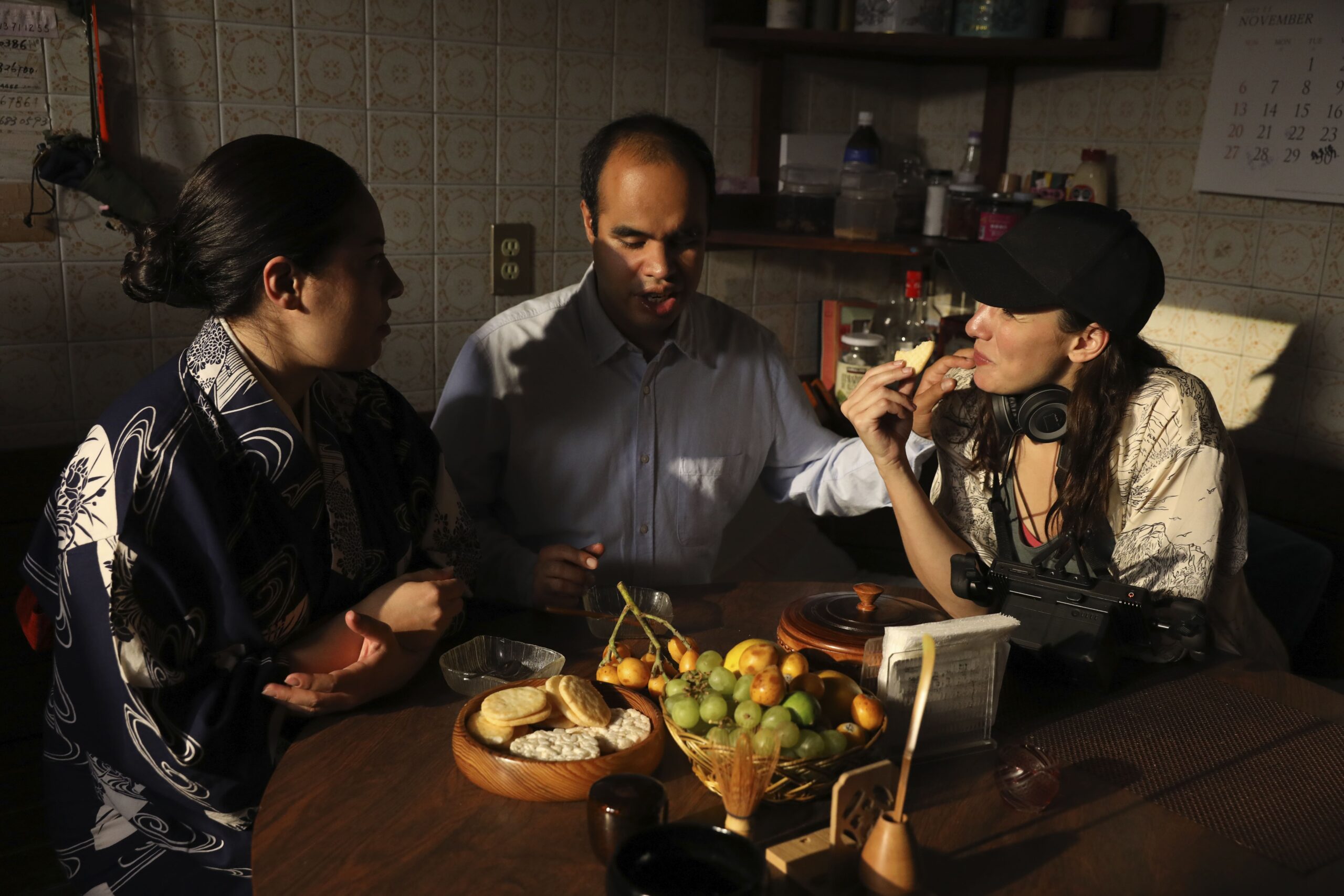
The series of short films of Miu Miu Women’s Tales this year will close with your “Eye Two Times Mouth”: what was it like for you to have the opportunity to join this project and what would you like to convey through this platform?
When I had that invitation, I felt super happy and honored. In cinema, you know, it’s ups and downs, and as a director, I think that to be a filmmaker you need a lot of enthusiasm. For example, I had the opportunity to meet Agnes Varda in Marrakesh, shortly before she died, and she was 80 and super alive, multiple times she told me, “I want to keep doing my job!” [laughs] That’s the kind of director I want to be, I want to keep playing and be alive.
Among the short films I’ve seen, there is Agnes Varda’s, Lucrecia Martel’s, Mati Diop’s, Lynne Ramsay’s, Alice Rohrwacher’s, Carla Simón’s, and all their stories are so beautiful and intimate. What’s really special is that Miu Miu gives every director the freedom to do whatever they want, that’s the most beautiful part, that you can give life to what comes to your heart and brain.
What were the main challenges you had to face to get this project done?
Mainly the fact that I needed to hurry because it all happened all at once [laughs]. But that’s the power of creativity and it’s beautiful because obviously, I needed to do a lot of stuff to develop what I had in my mind, but that’s the beauty of cinema, that you are united with your team and no matter what, you’re going to make it!
For me, people are super important – I’m that kind of freaky director who loves to take care of the castings, too [laughs]. For “Eye Two Times Mouth”, it was exhausting to find the perfect fit for the protagonist; I come from the theater, and for a long time I’ve worked in the Opera area, and I know it’s not easy to find a singer who can also act so well, so it was hard to find Akemi [Endo], who was so natural; as a director, I put a lot of trust in words and I’m super picky about accents and slang, and Akemi sounded so perfectly Mexican, she was very natural. When you find the right people, that’s the moment in which everything becomes alive.
So, I don’t know how I did it, but I did it! [laughs] I think that’s the beauty of art, that when you want to say something so badly, no matter what, you’re going to do it. That’s something super brave to do.
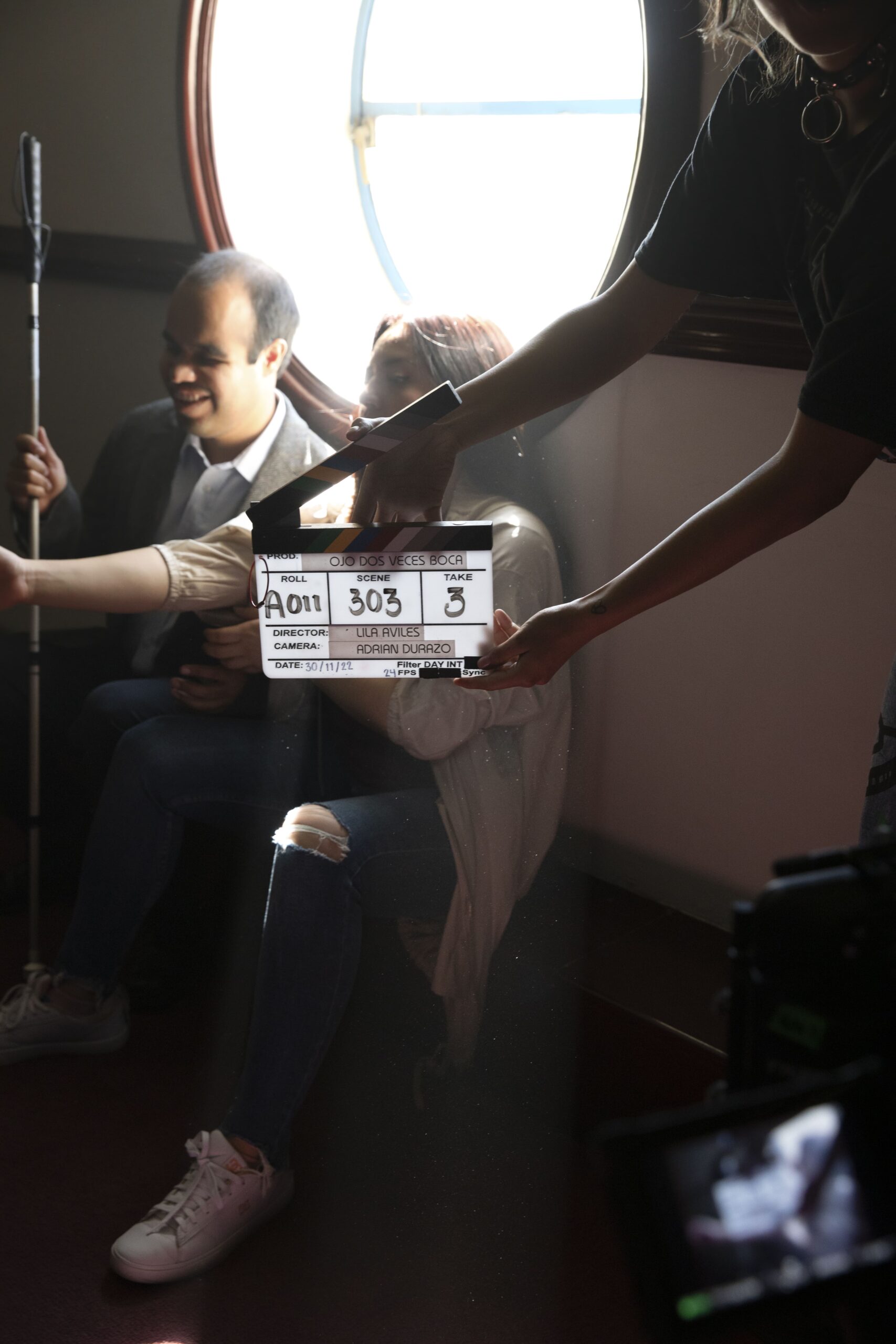
“When you find the right people, that’s the moment in which everything becomes alive.”
Of course, I think that of a filmmaker is one of the bravest jobs ever.
The “butterfly effect” you hint at in the movie is something that’s always fascinated me, the idea that “The flap of a butterfly’s wings can change the other side of the world”; have you ever been affected by this phenomenon in your life?
You know, I have my notebooks where I write things down and then read them again and again, so the film changes while you’re making it, and that’s so powerful. But there are always these phrases and keywords that somehow keep you “in the land”, and for me, what is so nice about the butterfly effect is that somehow everything is connected and you need to be respectful of everything. Right now, as humans, we should know that everything can change, everything is fragile, and we don’t have respect for anything, and I think that we need to return to that kind of respect-oriented mentality, whether it’s people or nature or whatever we have in front of us, or even if they’re not in front of us, even if it’s in another galaxy. Obviously, we can’t live our whole life obsessing over it, but I guess that to have that commonsense is important, and it’s so beautiful that you read, or hear, or see something, and that makes you think, “I’m going to make a film about this”, and you never know what could happen next, maybe someone in a university somewhere in the world might write their dissertation about it! That’s the beauty of connections.
Moreover, back to Opera, I think that music is the most mysterious thing in the world, it’s something that everyone can feel, and hear what it sounds like, and when you sing, you connect to what you’re singing and to the people who hear it. Then, Opera most of the time is drama, so the topic is not so amazing if you pick out the words, for example, but what makes it amazing is the music.
Erotism, high expectations, femininity, and self-confidence are some of your short film’s themes. Of these topics and of the questions that it leaves unanswered, what are the ones that concern you the most? What are the ones you’ve personally found an answer to?
I love the mystery that can be in every people, that famous “you never know” that gets you when you go in the subway, or you’re walking and there’s someone sitting somewhere. You can play a lot with perception, I think because we are social beings and sometimes, we believe too much in stereotypes, but I like to forget about our labels and think, “What if?”, and that’s nice! For example, every time I’m in a museum, I love to observe the keepers, sometimes I don’t see the artwork because I pay too much attention to them! [laughs]
I’m obsessed with people, I like people.
For me, it was so beautiful that Luz, the protagonist of the short film, was surrounded by art every day, and she, as a singer, also has her art in her “house” that it’s her body, her temple. I think that the nice thing about singing is that you need to find your voice both in terms of reaching the right notes and digging inside of your soul to find your own “vibración”. Every single person needs to find their voice, if you like to write or paint or whatever, you just need to find that vocation of yours, which I believe is what the new generation is obsessed about. You need to keep your voice warm and then throw it to the world, that’s what I think.
Also, what I loved about this short film is the question of perception it deals with: in Opera, like in gymnastics, the relationship between teacher and student is so solid, as is the relationship that Luz has with her teacher, even though he comes from a different perception. I think the most important part of every single path is the process, not the ending.
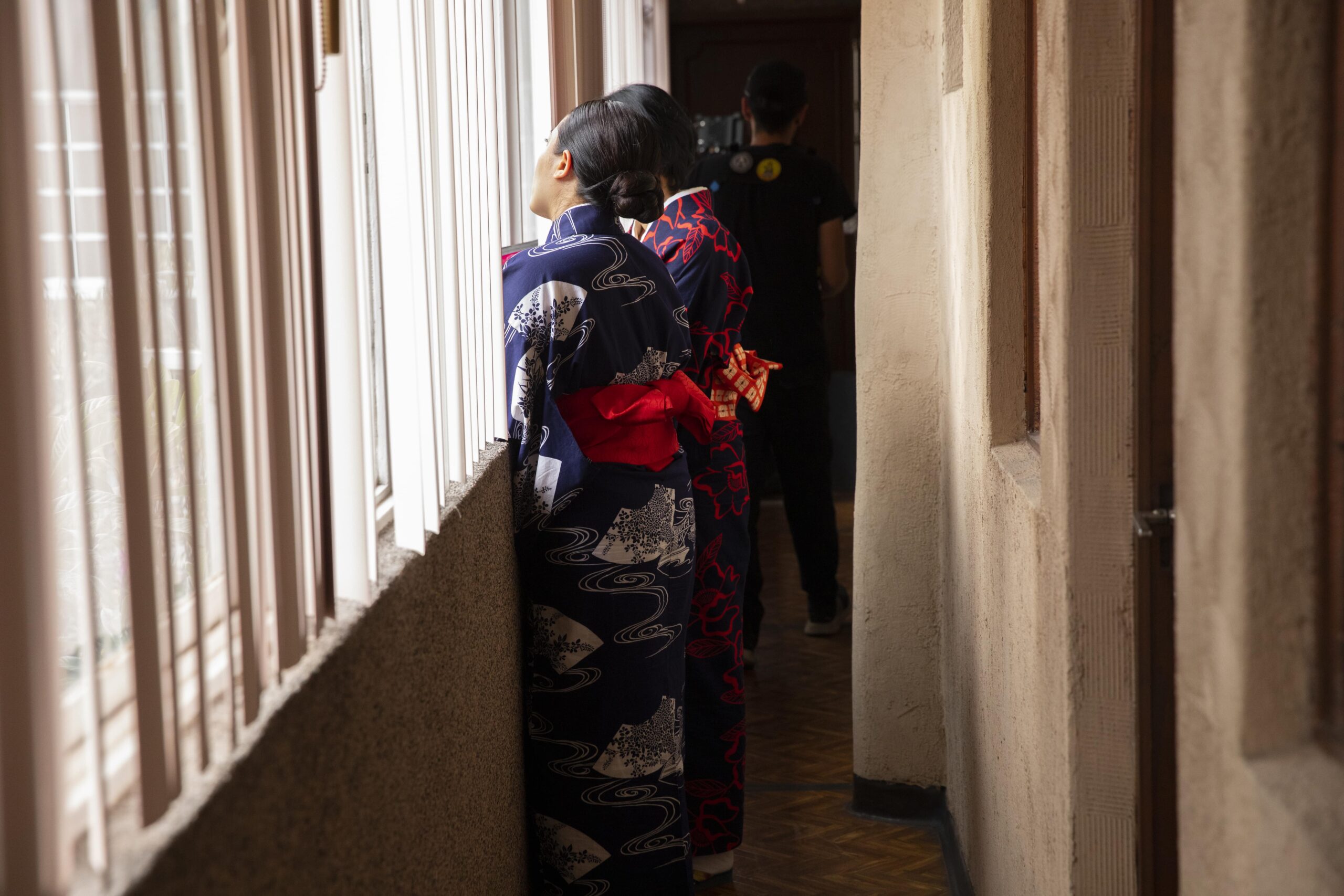
“Your eye is two times your mouth, your ear is three times your face”: is the pursuit of symmetry and geometric perfection an issue that touches you in a particular way?
Yes, super deeply. Speaking again of nature and butterflies and thinking about ourselves as animals, because sometimes we forget that we are animals, every day we’re out in the world and it would be nice if we could go back to really hear, really watch, really observe, really feel, and every day remember one important thing: that we’re part of a circle and we should be more respectful. For me, geometry is everywhere, it’s in music or even in a table, and it’s something spiritual rather than biological as we’re not perfect, but at the same time we are, and every single one of us is unique. That for me is super beautiful.
In Miu Miu Women’s Tales, clothes act as a counterpart to the narration, enriching and becoming characters themselves. Did you personally choose the costumes in your film? Was it a way, for you, to emphasize the story?
Yes! I personally chose the costumes because what’s amazing about the Miu Miu Tales is that they give you total freedom with the clothes, too. So, I chose my favorite colors, greens and browns, in clothes that were worn in the Spring/Summer collection. Anyhow, I’m the kind of director who doesn’t like when the clothes take over the people and become protagonists in their place, but of course, I love for them to play a role.
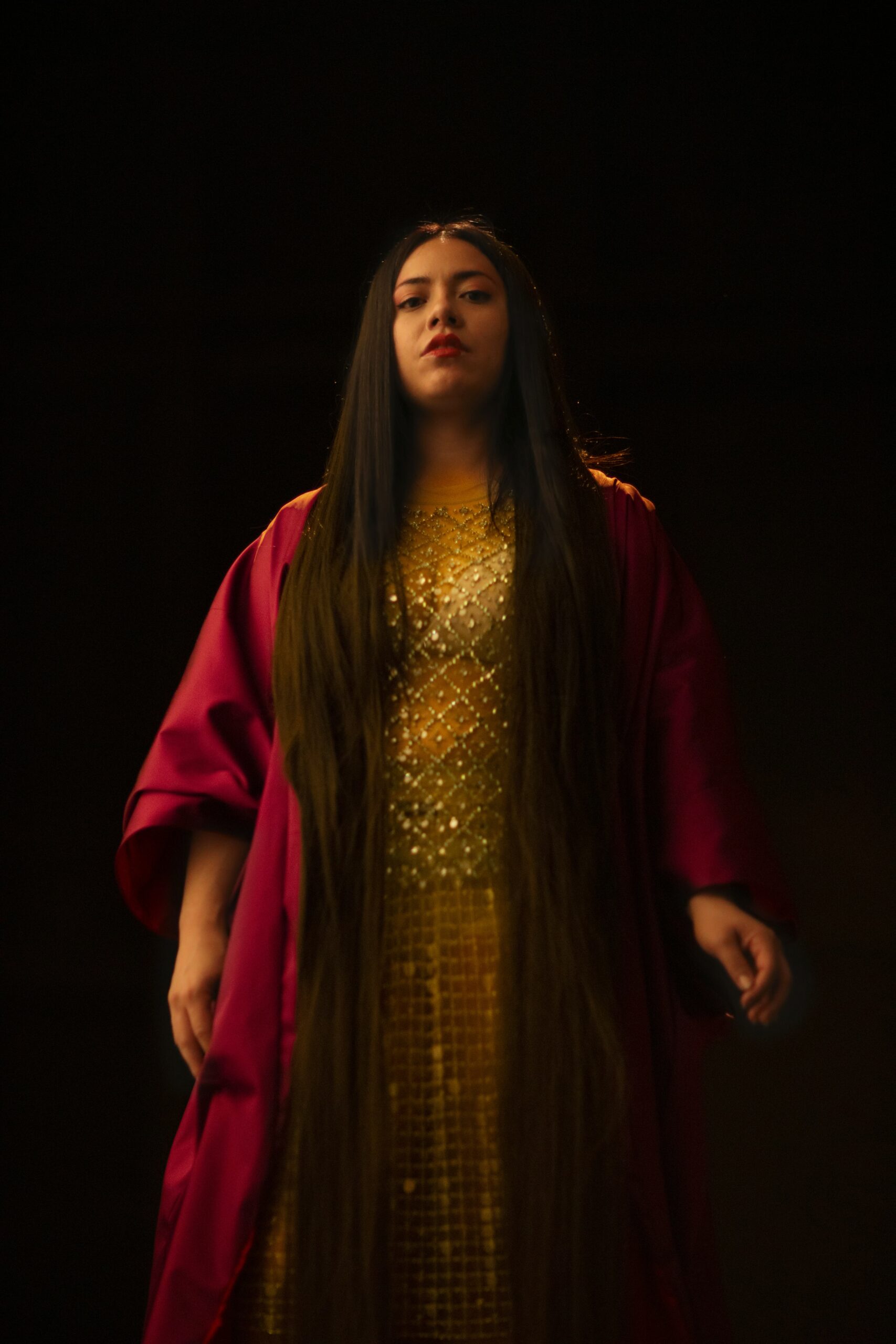
“We’re not perfect, but at the same time we are”
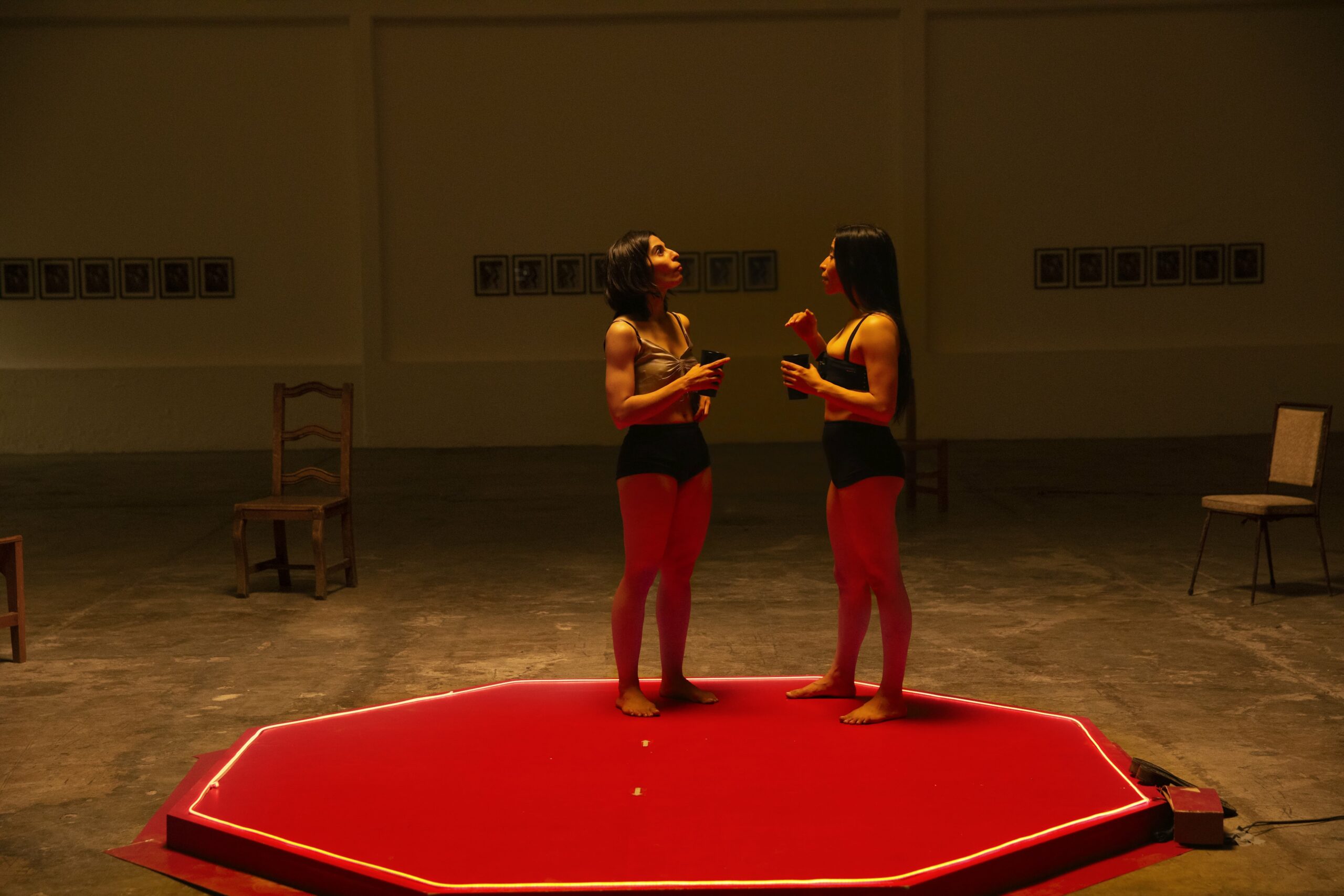
Miu Miu Women’s Tales is a platform thought to start dialogues and debates: on which topic would you like to start a conversation?
Ever since I made my first film, no matter which part of the planet I am on, I’ve always found myself having to answer one question: “What is a woman director supposed to be like?”. Sometimes, I hate that question, but obviously, we’re living in a time where we need to push a little bit more on that issue so that the directors of the future won’t be asked that question anymore. I also think that now’s a good time for women directors because more and more of them are gaining visibility, so I think the Miu Miu Women’s Tales are a great initiative also for cinema schools and funding and scouting new talents. You know, perhaps for cultural or religious reasons women often tend to be quiet and stay in the shadow, but I think it’s time to speak up and focus on the different approaches to cinema that women directors can have, for example. We need to get out of that cage. For me, the super powerful and beautiful thing about being a director is that my work speaks for me, so I could have a box on my face and you could never know my gender, it’s my work that matters.
It’s nice to have different conversations, as well, and not only be women talking about other women: it’s nice to bring in varied topics and players, like children or people with different backgrounds, or of different ages.
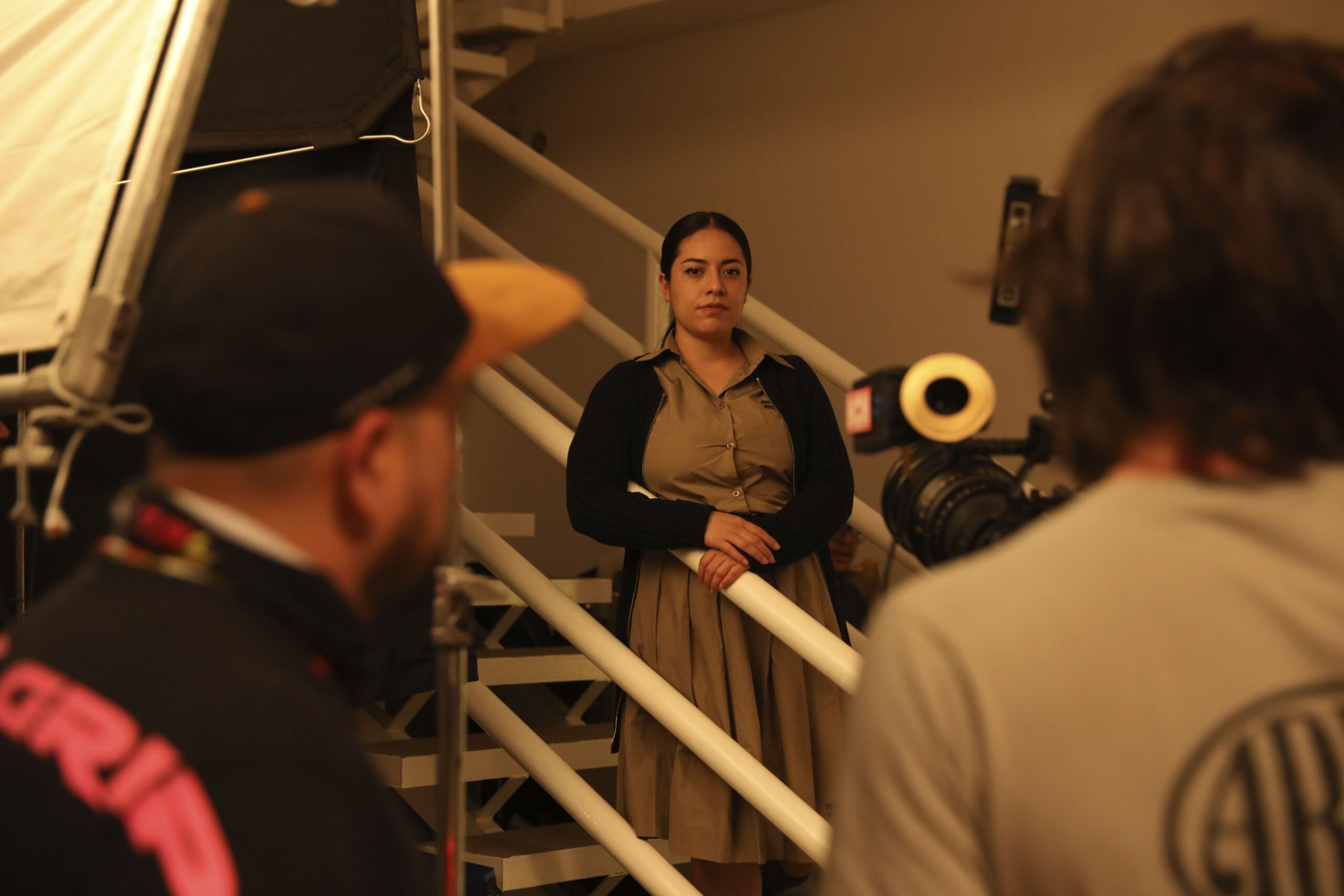
Perhaps, as an actor or as a director, when you make a film, you get in touch with parts of yourself that maybe you didn’t know because you go deep inside yourself. What’s the latest thing you discovered about yourself, also thanks to your work?
I think that cinema has given me everything. I feel tremendously grateful to the cinema. I’ve been lots of things in this field, I was an actress, but I also worked in the makeup and costume departments, in production, I’ve been an assistant director, and I’ve also tried to give my best all the time and to be respectful because every single department has its own value. However, I have a feeling that I need something else to be Lila, and it’s not a matter of power, it’s not about the “power” that directing might give you, it’s about the place where you feel the most comfortable. For me, the beauty of being so profoundly involved in every single film is that you dig so super deep inside of yourself that you don’t need to go to therapy [laughs]
To every girl and boy who dream of doing cinema, I would say: “Yes, go with the flow and try to say what you have in your soul!”.
Your second feature film “TOTEM” will premiere in 2023. Is there anything you can unveil to us about it?
You know what they say in theater, that if your first feature is successful, the second one is going to be a failure [laughs]… Also, speaking with some filmmaker friends of mine, they always say, “The second one is hard”. But for me, it doesn’t really matter what number it is, I’ll just keep doing movies anyways! The more movies you make, the more amazing it will feel to realize that you’re working in the cinema, so it’s not a matter of being better every time.
“TOTEM” is a story that comes from a very deep part of me: lately, I’ve been kind of nostalgic, in fact, I think I’m soon going to be on a roller coaster [laughs]. It’s the power of being privileged enough to do the job we like.
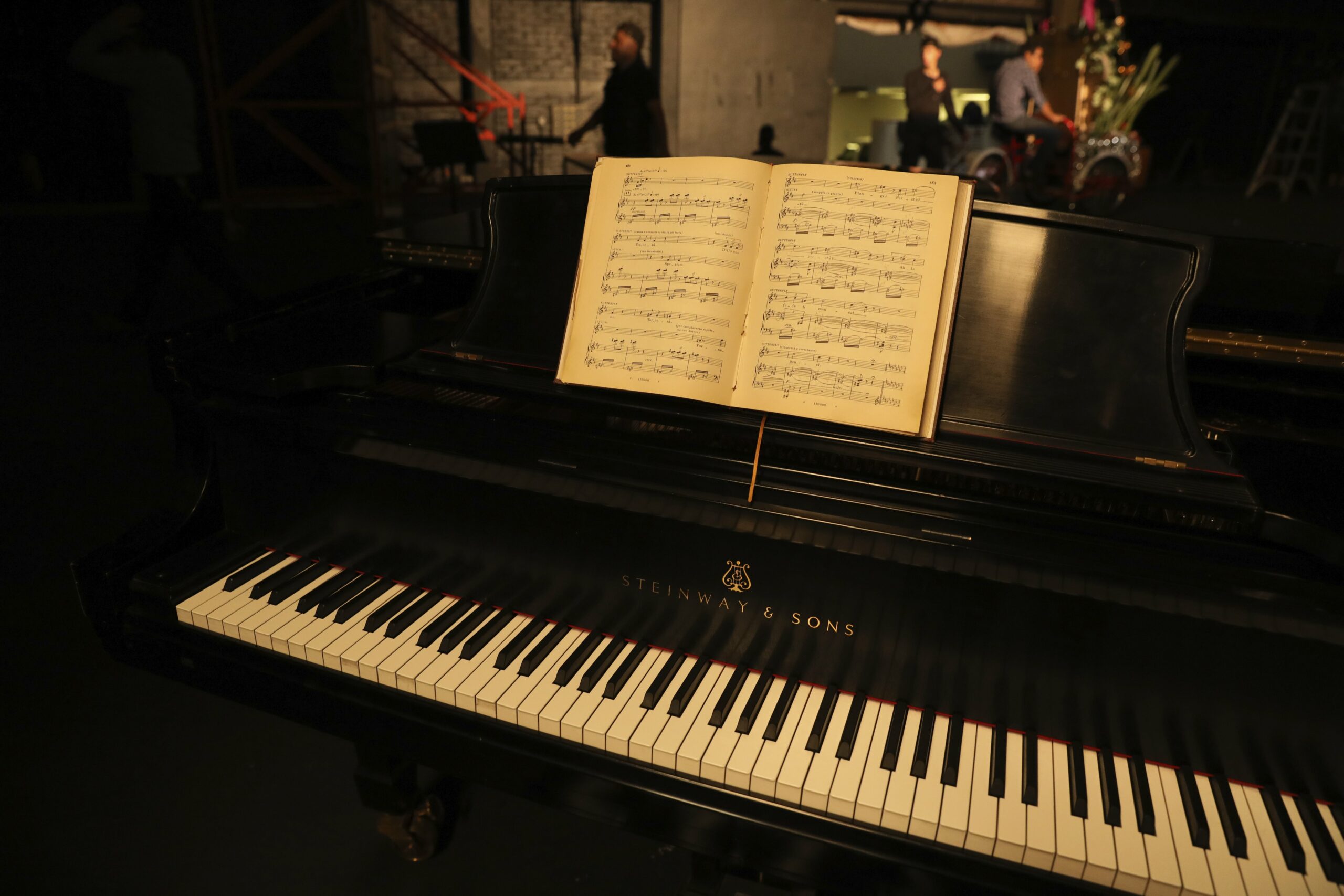
Thanks to Miu Miu.

